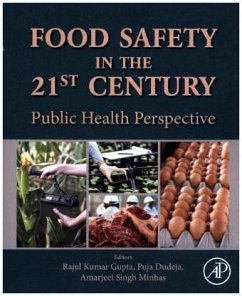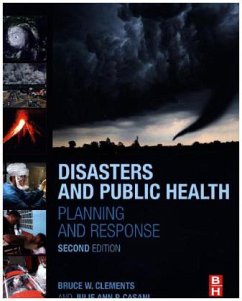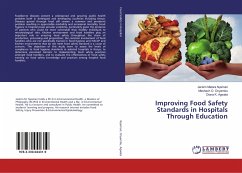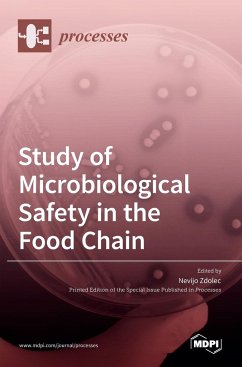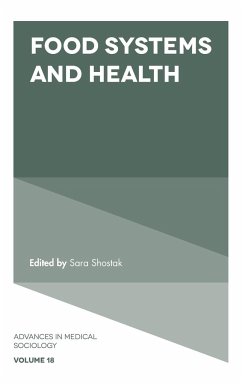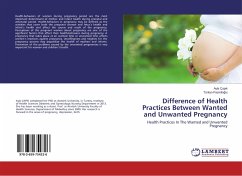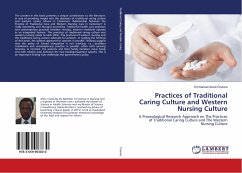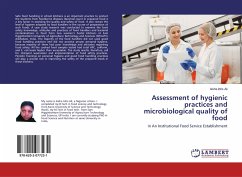
Assessment of hygienic practices and microbiological quality of food
in An Institutional Food Service Establishment
Versandkostenfrei!
Versandfertig in 6-10 Tagen
27,99 €
inkl. MwSt.

PAYBACK Punkte
14 °P sammeln!
Safe food handling in school kitchens is an important practice to protect the students from foodborne illnesses. Bacterial count in prepared food is a key factor in assessing the quality and safety of food. It also reveals the level of hygiene adopted by food handlers in the course of preparation of such foods. A case study research was conducted to examine the food safety knowledge, attitudes and practices of food handlers and bacterial contaminations in food from two women's hostel kitchens at Sam Higginbottom University of Agriculture Technology and Sciences (SHUATS) Allahabad, India. The m...
Safe food handling in school kitchens is an important practice to protect the students from foodborne illnesses. Bacterial count in prepared food is a key factor in assessing the quality and safety of food. It also reveals the level of hygiene adopted by food handlers in the course of preparation of such foods. A case study research was conducted to examine the food safety knowledge, attitudes and practices of food handlers and bacterial contaminations in food from two women's hostel kitchens at Sam Higginbottom University of Agriculture Technology and Sciences (SHUATS) Allahabad, India. The majority of the food handlers did not used good food handling practices and did not practice proper personal hygiene, because majority of them had poor knowledge and attitudes regarding food safety. All the cooked food samples tested had total APC, coliform, and E. coli levels higher than acceptable. The study results, therefore, call for stringent supervision and implementation of food safety practices. Periodic trainings on personal hygiene and good food handling practices will play a pivotal role in improving the safety of the prepared meals in these kitchens.



